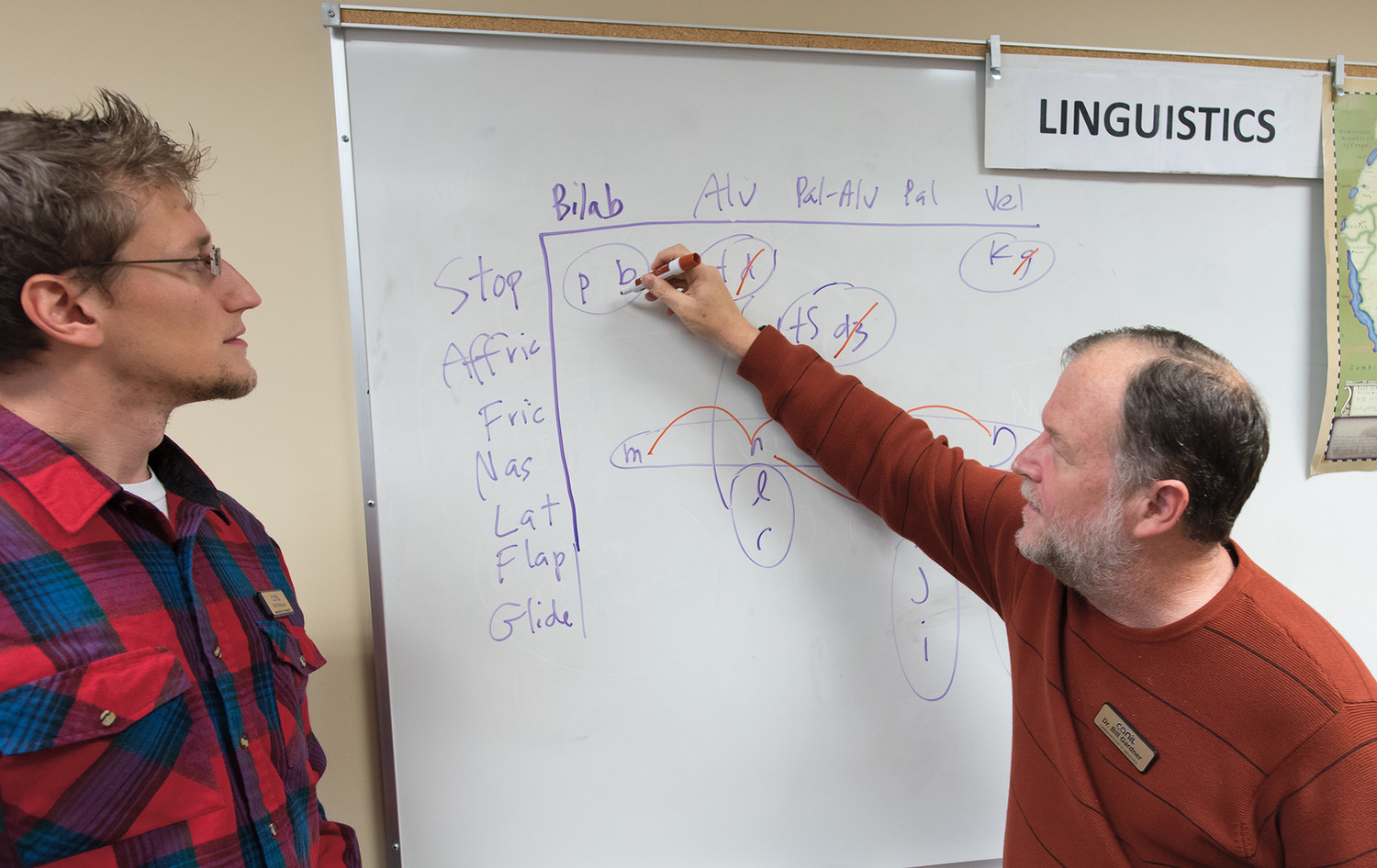Starting modestly in 1985, CanIL initially offered a summer semester of courses to 32 students in spare Trinity Western classrooms. Despite some early enrolment speed bumps, the student body grew throughout the ’90s, averaging 50 students per year.
Along with more students there was also an expansion in course offerings. By the late ’90s, CanIL was the official linguistics department for Trinity Western, offering a BA in linguistics, TESL (Teaching English as a Second Language) and master’s level linguistics degrees.
“We were the fastest growing department on the Trinity Western campus for quite a few years,” explains Dr. Mike Walrod (pictured at left), who served as CanIL’s president from 1987-2013. “Virtually every program we implemented succeeded beyond our expectations. A lot of young people came through here and the level of commitment was phenomenal.”
The most visible sign of growth came in 2004, with the opening of the Harvest Centre—CanIL’s very own, three-storey building on the Trinity Western campus. The $3.7-million, donor-funded project was critical to the program’s future, which in 2002 had an enrolment of more than 165 students, but was operating in a crowded group of aging portable buildings.
Becoming a Global School
Firmly established on the Trinity Western campus, in recent years CanIL has expanded beyond the west coast, developing working relationships with Christian colleges across the globe. Today, students can take classes at CanIL’s Langley campus for one or more semesters and then transfer those credits towards their degree program elsewhere. Institutions that have partnerships with CanIL include the Biblical Language Centre (BLC) in Jerusalem, along with a growing number of Canadian and American Christian colleges and universities.
Going beyond simply a partnership, however, is CanIL’s relationship with Tyndale University College and Seminary in Toronto (pictured above). In 2015, CanIL signed a formal agreement with Tyndale to run and staff Tyndale’s bachelor’s degree in linguistics program.
Paul Arsenault (pictured at left), a professor of linguistics for the CanIL East program on the Tyndale campus, believes that eastern Canada and particularly Toronto—where much of Canada’s population resides—has a “tremendous untapped potential” to recruit for linguistics and Bible translation.
“For CanIL, there’s often been a lot of recruits that come from eastern Canada,” explains Arsenault. “For a lot of those people the CanIL West program on Trinity Western campus is a long way to travel to.”
Still in the early stages, this new agreement with Tyndale—along with CanIL’s relationships with other schools across the globe—has transitioned CanIL into a school that isn’t confined to just one campus. And with the CanIL East program now in place, the potential growth on the horizon is truly exciting.
•••••
